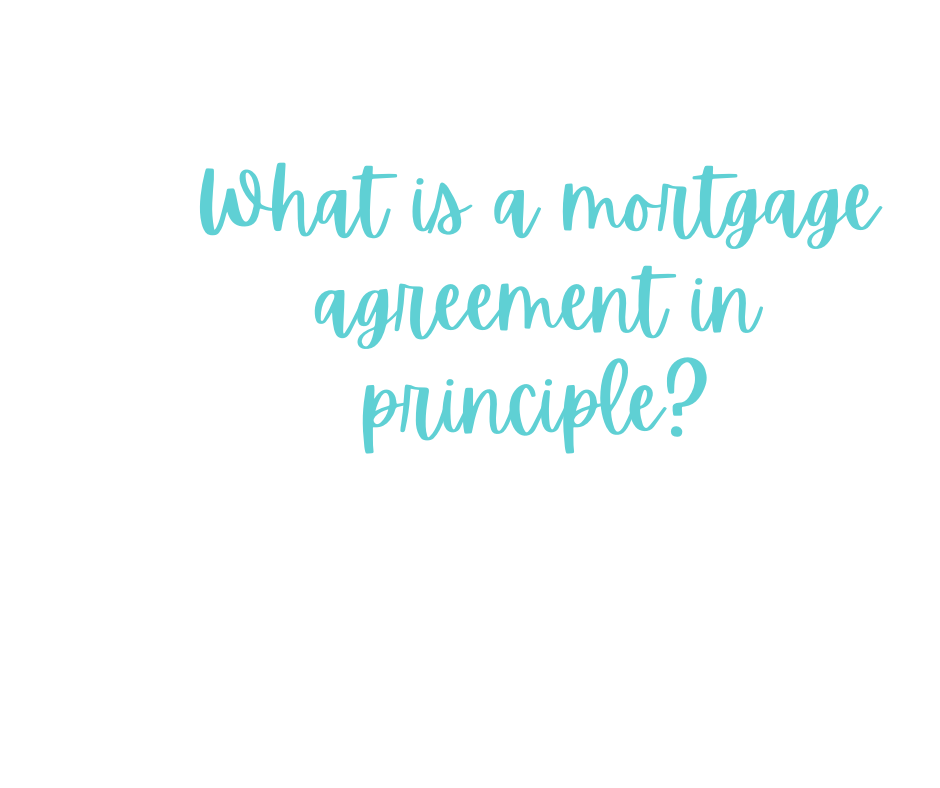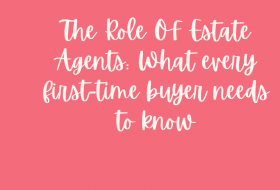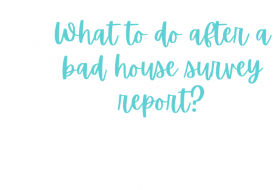Have you come across the term mortgage agreement in principle while researching buying your first home? Are you wondering exactly what it is and whether you need one?
This is our easy-to-understand guide to what it is. We’ll also tell you how it can help you improve your chances of buying your first home and how you would get one.
And just to help avoid any confusion, if you hear some people refer to it as a decision in principle, basically they mean the same thing. (Confusing, we know!)
What is a mortgage agreement in principle?
A mortgage agreement in principle, is a statement from a mortgage lender (the people who lend you the money). It indicates how much they might be prepared to lend you for a mortgage.
They are a good way of confirming what you can borrow for a mortgage so you can start looking at properties.
Importantly, however, a mortgage agreement in principle does not guarantee that you will definitely get a mortgage.
Often an agreement in principle requires less information than a full mortgage application so think of this as a first check rather than a guarantee.
Why is getting a mortgage agreement in principle (MAIP) a good idea?
You don’t have to get a mortgage in principle, but there are some benefits if you do:
- You get a clearer idea of what you can borrow, as it goes much deeper than simply using an online mortgage calculator.
- It helps you avoid wasting time looking at properties you can’t afford, so you can focus on finding ‘the one’ within your budget.
- Some estate agents want reassurance that you are a serious buyer before they will arrange any property viewings.
A MAIP is a great way to prove that you are ready to buy. - It’s also helpful when you come to negotiate your offer to buy a property. Especially if you have a situation where two buyers offer the same amount. It’s proof to the estate agent that you can afford the property. And that you are ready to proceed with a full mortgage application. They might choose you as the buyer who is best prepared.
- Because you have already provided the answers to questions about your finances to get a MAIP, it speeds up the full application process once you have an offer accepted.
- Importantly, it also reduces the risk that you’ll apply for a too-big mortgage and be rejected (which will look bad on your credit file).
What does a mortgage agreement in principle look like?
This varies depending on the lender. Usually, it’s a certificate stating the amount they are willing to lend you, or confirming that your mortgage in principle application has been accepted.
When should you get an agreement in principle?
An agreement usually lasts between 60 and 90 days, so if you are ready to start house-hunting, then that is a good time to get one. Knowing the maximum amount that you can afford will help you focus on looking at properties within your budget.
If you don’t find a property in this time, you might need to renew the agreement or apply for another. However, it is up to you. Don’t worry if that’s the case; assuming your circumstances (or the economy) have not changed during this time, it shouldn’t be a problem. But do pay attention to the impact on your credit rating covered below:
Does a mortgage agreement in principle negatively affect your credit rating?
Part of getting an agreement in principle is that the lender will check your credit history. There are two types of credit checks that different lenders run- a soft search and a hard search.
A soft search cannot be seen by other lenders and shouldn’t affect your credit file. But a hard search will show on your file as an application for credit.
If a lot of hard searches are run in a short space of time, there is a risk that a lender will see these as rejections for credit and could refuse your application.
It’s important to find out what kind of check your lender will run before they do it.
A mortgage advisor can help you with this, as they will know which search lenders use. This should help avoid it becoming an issue.
It’s a good idea to check your credit file before applying for a decision in principle anyway. It means that if you do find a problem, you have a chance to try and fix it before you make a full mortgage application.
Why not just apply for an actual mortgage?
Your mortgage deal will depend on the property you are buying, so you can’t apply for a mortgage until you have an offer accepted on a property.
Getting a mortgage agreement in principle is much quicker and takes a lot less effort than a full mortgage application. And it means you can start house hunting with confidence.
How do you apply for a mortgage agreement in principle?
You can apply directly with a mortgage lender or through a mortgage broker.
A mortgage broker has access to a greater range of mortgages that you will find on the high street or from your bank.
They will find you the best mortgage deal for your situation and help guide you through the whole mortgage application process. Saving you time and probably a few headaches too.
Our Mortgage Adviser Matching Service can help you find an adviser that is suited to your situation.
What do you need to apply?
You will need the following information to apply:
- Your income – payslips and bank statements for the past 3 months, or your business accounts for the past 2-3 years if you are self-employed.
- Your spending – all your expenses, so credit cards, utility bills, subscriptions and memberships, etc.
- Credit agreements – details of loans and items bought on credit, e.g. laptop, TV etc.
- Previous addresses – for the last 3 years.
How much does it cost?
- A mortgage agreement in principle is free from your lender and usually free from a mortgage broker too.
- In some cases a mortgage broker may charge a fee. But, usually they will help with your MAIP for free. It’s a great way for them to get to know you and encourage you to use them to make your full mortgage application.
Can you be refused a mortgage agreement in principle?
Sadly, yes, you can. And if you are, it could affect your credit rating.
You could be refused for many reasons, including:
- Not enough income
- Unreliable income
- Your deposit is too small
- A poor credit score
- Too much debt
- You have changed jobs recently or too often
- Your spending appears extravagant
- Your application has incorrect information.
That’s why it’s so important to be prepared before you apply. Also, as we mentioned before, consider applying for one that does a soft search.
You really want to avoid any negative impact on your credit rating; it could mean an even bigger delay in being able to buy your first home.
Are you ready to get a mortgage agreement in principle?
Now you know what one is, you might be wondering whether you are ready to get one yet?
The following three questions will help you decide:
- Do you have a deposit saved (or almost saved)?
- Do you have all the information you need to apply?
- Are you ready to start house-hunting or viewing properties?
If you answered yes to all of the above, then you are probably ready to apply for a mortgage agreement in principle. Remember, it is important to choose the right lender.
If you’d like more support and advice with buying your first home, just get in touch. Our First-Time Buyer Coaches and Mortgage Advisers are here to help you every step of the way.








